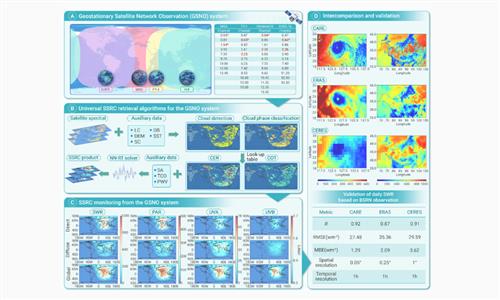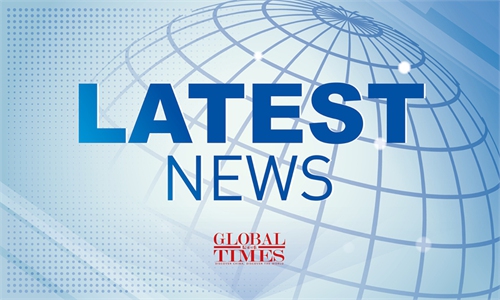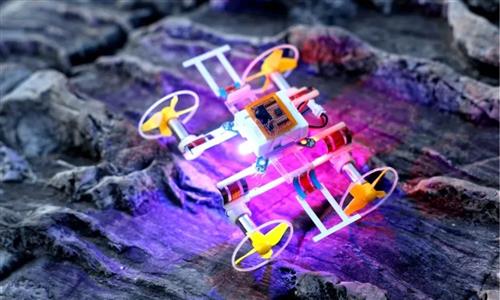
Photo: VCG
Editor's Note:When he was just 27, renowned mathematician Shing-Tung Yau (Yau) solved the world-famous "Calabi conjecture," earning prestigious accolades including the Fields Medal and the Wolf Prize. Yau is widely regarded as one of the most influential mathematicians of our time. Over the decades, Yau has witnessed the transformation of China's academic landscape - from one of scarcity to one of brilliance.
In an interview with Global Times (GT) reporter Su Yaxuan, Professor Yau emphasizes that China now offers fertile ground for nurturing world-class scholars, with an increasingly vibrant academic environment that is making "many international scholars look eastward." As global dynamics shift and China-US relations grow more complex, Yau advocates for high-caliber international academic exchanges to mitigate misunderstandings, foster mutual trust and confront the scientific challenges facing humanity.
GT: How would you characterize the evolution of academic environments in China over the past several decades?
Yau: In the 1970s, mathematical research in China faced significant challenges, including a notable generational gap. In the early 1980s, the Chinese government made the important decision to expand the number of students sent abroad, which in hindsight was a very wise move. To be frank, the academic level at Chinese universities at that time lagged far behind that of the West. Sending students abroad for higher education is a path that most countries have taken to advance their scientific development. Those early cohorts of Chinese students lived up to expectations and performed remarkably well.
Over the past four decades, since the 1980s, China has steadily grown into a global powerhouse in scientific research. It has generated a significant body of work, and the academic environment has become increasingly vibrant and dynamic. Throughout this process, we have learned extensively from Western countries.
Today, academic conditions have improved dramatically, supported by robust national policies. While we have many scholars, I still believe the numbers are insufficient. Our most urgent task now is to raise the standards of our research institutions over the next five years and cultivate a generation of world-class scholars domestically.
For today's Chinese students, studying abroad is no longer as essential as it once was. Our education system has improved markedly. For instance, the faculty and academic environment at Qiuzhen College of Tsinghua University now rival those at top global institutions. China can attract world-class scholars by offering competitive salaries and enhanced support in areas such as healthcare and education. The academic atmosphere is stronger than ever, and many international scholars are now looking eastward.
If I were a parent today, I would prefer my child to study in China. Students overseas often face various forms of discrimination, and the academic and professional environments abroad are not as promising as they once were.
GT: In recent years, China has seen a significant increase in the number of highly educated talents. What is the strategic significance of this for China to become a global center for technological innovation?
Yau: The number of people receiving higher education is crucial to a country's economic development. I recall that some American education experts publicly argued that the US government didn't need to produce large numbers of university graduates. They believed academic research required only a small elite group, and educating vast numbers of undergraduates was a waste of resources.
This mind-set has now become a serious obstacle to the US' development. In cutting-edge, high-tech industries - especially those involving large-scale manufacturing - the US is facing a severe shortage of skilled labor. Take Apple as an example: the company is willing to build factories in the US, but it lacks access to a sufficiently skilled workforce, and labor costs are prohibitively high. As a result, domestic manufacturing becomes unfeasible.
In contrast, China has succeeded in cultivating a vast pool of highly skilled technical personnel. While not all of them are top-level scientists, they are more than capable of supporting advanced manufacturing sectors. From frontier technologies to industries such as machinery production and smart vehicles, these sectors all depend on a large number of well-trained engineers and technicians. China has developed the workforce needed to support its ascent in high-tech industries. This is a fundamental reason behind China's steady progress toward the forefront of global manufacturing.
GT: What new challenges do Chinese scientists and students face in the US today? How might this affect China-US academic exchanges and global scientific cooperation?
Yau: Mainstream American media today is often unfriendly toward China. It frequently reports on so-called problems that are either non-existent or grossly exaggerated. We need to actively work to change these perceptions.
From 2023, every July, we host the International Congress of Basic Science in Beijing, where I serve as chair. We invite scholars from across Europe and the US to attend and share the latest advancements in science and technology. Beyond academic collaboration, these events provide international scholars with an opportunity to see the real China and develop deeper connections with their Chinese peers. Hosting global academic events like this is a powerful way to introduce China to the world and promote mutual understanding.
GT: You are leading China's bid to host the 2030 International Congress of Mathematicians (ICM), known as the "Olympics" of the mathematics world. What do you see as the significance of this effort?
Yau: Hosting the ICM would be a landmark achievement, much like the 2008 Beijing Olympics was for Chinese sports. The success of the Beijing Olympics inspired many young athletes to dedicate themselves to their disciplines, resulting in strong performances in international competitions.
I believe that hosting a major international academic event like the ICM would have a similarly inspiring effect on young scholars. The year 2030 would become a powerful motivational goal - five years for Chinese mathematicians to strive for breakthroughs and present world-class work on the global stage.
Moreover, hosting the ICM would bring thousands of scholars to China, many of whom may not have had previous exposure to the country. Through this experience, they would witness firsthand the impressive achievements of Chinese scientists and gain a more accurate understanding of China. This would help reshape global perceptions in a meaningful way.
GT: With the rapid advancement of artificial intelligence (AI) technology, academia is undergoing major transformations. In your view, what substantive impact has AI had on academic research?
Yau: AI is already having a profound impact across both scientific and industrial fields and will continue to play an increasingly important role. It may even begin to influence the structure of knowledge and reshape certain academic disciplines. That said, I believe its influence remains limited at present.
AI is useful in many areas. For example, in research, it can help identify relevant literature quickly. In mathematics, it can assist with certain types of computations. However, AI cannot yet engage in deep, original thought. It cannot match the human capacity for profound intellectual exploration. Expecting AI to independently produce revolutionary new ideas or breakthroughs in academic fields is not realistic. While AI can aid mathematics, it will not fundamentally transform it.
I encourage students to use AI as a tool, but genuine academic work must always involve critical thinking.



